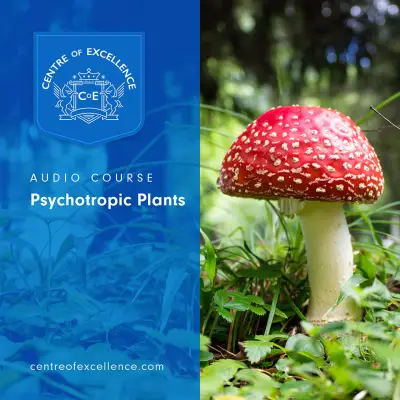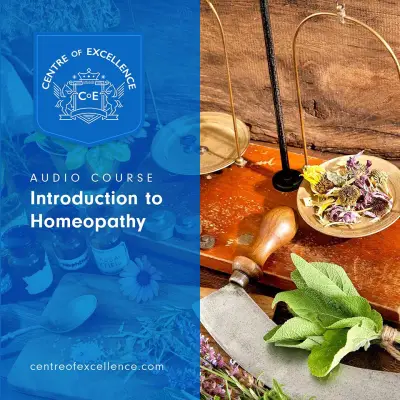With promises to boost energy, enhance memory, support immunity, and even help with sexual function, ginseng has gained a glowing reputation. But is it really worth adding to your wellness routine?
Whether you’re curious about its traditional uses, interested in its benefits for men and women, or wondering about potential side effects, this guide breaks everything down.
This article is for informational purposes only and is not a substitute for professional medical advice, diagnosis, or treatment. Always consult with your GP or a qualified healthcare professional before starting any new herbal remedies, especially if you are pregnant, breastfeeding, taking medication, or managing a health condition.
Jump To:
- What is Ginseng Root?
- The Benefits of Ginseng Root
- What Types of Ginseng Root Can You Take?
- What is the Best Form of Ginseng Root to Take?
- How Much Ginseng Root Should You Take, and When?
- What Are the Side Effects of Ginseng Root?
- Who Should Avoid Ginseng Root?
- Is Ginseng Root Safe for Long-Term Use?
- Other Common Questions About Ginseng Root
- Study Our Master Herbalist Diploma for £29
Recommended for you!
Best SellersWhat is Ginseng Root?
Ginseng is a plant whose roots have been used in herbal medicine for thousands of years, particularly in traditional Chinese and Korean medicine. The most common types are Panax ginseng (often referred to as Korean ginseng), Panax quinquefolius (American ginseng), and Eleutherococcus senticosus (Siberian ginseng), though the latter is technically not a “true” ginseng.
The root is believed to act as an adaptogen, a natural substance that helps the body adapt to stress and restore balance. You can find it in many forms: ginseng tea, tablets, capsules, powders, tinctures, or even as a dried root.
The Benefits of Ginseng Root

Ginseng is thought to offer a wide range of health perks. Here's a look at some of the most common:
1. Energy and Mental Clarity
Many people use ginseng to combat fatigue and improve concentration. Some research suggests that it can support mental performance and cognitive function, particularly in stressful or demanding situations. It may also help regulate blood sugar levels, contributing to more sustained energy throughout the day.
2. Immune Support
Ginseng root may support your immune system, helping your body defend against illnesses more effectively. It has antioxidant and anti-inflammatory properties, which could explain its traditional use for cold and flu prevention. Regular use may also improve your body’s resistance to infections and help reduce recovery time from minor illnesses.
3. Ginseng Benefits Sexually and for Erectile Dysfunction
When it comes to sexual health, ginseng benefits men and women in different ways. Korean red ginseng benefits have been studied particularly for men with erectile dysfunction (ED). In some studies, Panax ginseng helped improve sexual performance and arousal. It’s also thought to support libido and stamina by increasing circulation and reducing performance-related fatigue.
4. Hormonal Balance
Some evidence suggests that ginseng may influence hormone levels, including testosterone in men and oestrogen in women. It may not be a replacement for hormonal treatments, but it’s sometimes included in supplements for hormonal support. By gently supporting the endocrine system, ginseng may help regulate mood, energy, and reproductive health over time.
5. Stress and Mood Support
As an adaptogen, ginseng may help the body better manage stress. It’s sometimes recommended for those dealing with anxiety, fatigue, or burnout. In addition to its calming effects, it may also help improve resilience and emotional balance in challenging environments.
6. Digestive Health
Ginseng supports digestion and may help reduce inflammation in the gastrointestinal tract. Some people find it helps with bloating, while others notice improved bowel movements. It can also promote the growth of beneficial gut bacteria, which plays a role in maintaining overall digestive health.
7. Skin and Beauty
Ginseng for the skin is growing in popularity. It's often found in skincare products, and people use it to improve their complexion, reduce signs of ageing, and promote elasticity. When used consistently, it can help revitalise tired-looking skin and protect it from environmental damage. Benefits of ginseng for the face include:
- Promoting collagen production
- Fighting signs of premature ageing
- Enhancing blood circulation to give the skin a healthy glow
- Supporting skin cell regeneration for a more radiant appearance
8. Weight and Metabolism
Ginseng may help boost metabolism and support healthy weight management when paired with diet and exercise. It can increase energy levels and reduce appetite in some people, which may contribute to better control over eating habits. Its adaptogenic nature also helps the body cope with stress, which can be a contributing factor to weight gain.
What Types of Ginseng Root Can You Take?
Ginseng supplements are available in various forms, offering you plenty of flexibility based on your personal health goals, lifestyle, and preferences.
You can choose from capsules, powders, teas, tinctures, extracts, tablets, and combination formulas. Some forms are especially convenient for everyday use, while others offer targeted support for specific concerns like energy, immunity, or sexual health.
What is the Best Form of Ginseng Root to Take?

- Capsules and Tablets: Capsules and tablets offer a simple and consistent way to supplement with ginseng. They’re easy to take, travel-friendly, and allow for precise dosing. This form is ideal for those who prefer a no-flavour, mess-free option that fits neatly into a daily supplement routine.
- Teas: Ginseng tea benefits include gentle stimulation, improved focus, and overall wellness. This form is a relaxing way to consume ginseng and is often combined with other herbs for added support. Teas are perfect for those who enjoy a soothing ritual and want a mild introduction to the benefits of ginseng.
- Powders: Ginseng powders can be stirred into smoothies, juices, or yoghurt, offering flexibility in how you consume it. Powders allow for customisable dosing and are a good fit for those who enjoy tailoring their own wellness blends or shakes. This form is popular with people following holistic or herbal lifestyles.
- Tinctures: Tinctures are concentrated liquid extracts taken by dropper, either directly under the tongue or diluted in water. They offer fast absorption and high potency, making them suitable for those seeking more immediate results or managing specific concerns like fatigue or stress. Tinctures are often favoured by experienced herbal users. Discover how to make your own herbal tinctures.
- Extracts: Ginseng extracts are concentrated forms found in many high-quality supplements. They may appear as liquids, capsules, or soft gels and typically provide a higher dose in a smaller amount. Extracts are excellent for targeting specific issues such as low energy or erectile dysfunction, and they’re often standardised for consistent active compounds.
- Gummies: Although less common, ginseng gummies are growing in popularity as a palatable option, especially for those who dislike swallowing pills. They are often combined with other vitamins, such as B12 or C, to enhance energy and immunity.
- Combination Formulas: Some ginseng products are blended with other beneficial ingredients like royal jelly, vitamin C, or zinc for a more comprehensive health boost. These formulas target multiple wellness goals, including sexual health, immunity, and mental clarity, and are great for simplifying your routine by combining several ingredients into one supplement.
No matter which form you choose, opt for high-quality products that specify the type of ginseng used – such as Panax ginseng (Korean ginseng), Panax quinquefolius (American ginseng), or Eleutherococcus senticosus (Siberian ginseng). Trusted brands often include standardised extracts and use careful processing methods to retain potency and safety.
How Much Ginseng Root Should You Take, and When?
The recommended dosage of ginseng varies widely depending on the type of ginseng, the form of the supplement, and the reason you're taking it. For general wellness, doses between 200mg to 400mg per day of standardised extract are common, while higher amounts may be used short-term for specific concerns like stress or sexual health.
If you’re new to ginseng, it’s often best to begin with a lower dose to see how your body responds before gradually increasing. Ginseng is usually taken in the morning or early afternoon, as it can be stimulating and may interfere with sleep if taken too late in the day.
For daily energy and mental focus, taking ginseng in the morning aligns with your natural cortisol rhythm and can help sustain you through the day. If you’re using ginseng to support recovery from illness, enhance immunity, or improve libido, timing may vary based on your individual needs and supplement instructions.
To support sexual health, especially in cases like erectile dysfunction, ginseng is generally taken daily over several weeks for optimal results. Always follow product-specific guidelines and speak with a healthcare professional if you're combining ginseng with medication or managing a health condition.
What Are the Side Effects of Ginseng Root?

Common side effects of ginseng root are usually mild and occur more frequently when the supplement is taken in high doses or over long periods. Most healthy adults tolerate ginseng well, especially when used in moderate amounts and for short durations. However, some people may experience:
- Digestive discomfort, such as nausea or diarrhoea
- Headaches
- Insomnia or restlessness
- Increased heart rate or blood pressure
- Dizziness or nervousness in some cases
Overstimulation is one of the more frequent complaints, particularly if ginseng is taken alongside caffeine or other stimulants. It’s also important to avoid mixing ginseng with alcohol or using it late in the day, as this can disrupt sleep patterns. Always choose high-quality, properly standardised ginseng supplements to minimise the risk of side effects and ensure safety.
Who Should Avoid Ginseng Root?
Ginseng may not be suitable for everyone. People with high blood pressure, heart conditions, or hormone-sensitive cancers should avoid using ginseng unless advised by a healthcare professional, as it may interfere with these conditions or medications. Ginseng can also affect blood sugar levels, so those with diabetes should monitor their response carefully.
People taking blood thinners, antidepressants, or medications that influence the immune or endocrine systems should use caution due to possible interactions. This includes drugs like warfarin, insulin, and certain MAO inhibitors. Because ginseng may stimulate the immune system, it’s not usually recommended for those with autoimmune diseases such as lupus or multiple sclerosis unless under medical guidance.
Pregnant or breastfeeding women and young children should consult a doctor before using ginseng, as safety data for these groups remains limited and inconclusive.
Is Ginseng Root Safe for Long-Term Use?
Short-term use of ginseng is generally considered safe for most adults when taken at recommended doses. However, the long-term effects of daily ginseng supplementation haven’t been thoroughly studied. To reduce the risk of tolerance or side effects, it’s often suggested to take ginseng in cycles – for example, using it for two to three weeks, then taking a break of one week before resuming.
Using ginseng seasonally, during times of increased stress or immune vulnerability, may also help preserve its effectiveness. Taking regular pauses allows you to assess how your body is responding and can help prevent overstimulation or diminished results from prolonged use.
For ongoing benefits, ginseng can be used consistently during times of stress, high demand, or seasonal vulnerability. Some herbalists recommend a cycling usage pattern, such as using it for three weeks followed by a one-week break, to maintain effectiveness over time.
Recommended for you!
Best SellersOther Common Questions About Ginseng Root
Is ginseng the same as ginger?
Ginseng is not the same as ginger. Although they sound alike and are both roots, they are completely different plants with unique properties. Ginseng comes from the Panax genus and is used primarily as an adaptogen to support stress response and energy. Ginger, on the other hand, is part of the Zingiber family and is mainly used to aid digestion, reduce nausea, and support anti-inflammatory effects.
Does ginseng increase testosterone?
There’s some evidence that ginseng may help support testosterone levels, but it’s not a substitute for hormone therapy. Ginseng may enhance libido and sexual function in men by supporting circulation and hormone regulation. However, the effects can vary.
Why is ginseng so expensive?
High-quality ginseng is slow-growing, and wild varieties are rare, making them highly valued. It can take four to six years or more for the root to mature properly, which contributes to its higher price tag. Some aged roots, especially those over 100 years old, are prized for their rarity and can sell for tens of thousands of pounds in certain herbal markets.
Does ginseng work quickly?
Some people feel energised quickly, while others notice more benefits after a few weeks of use. The speed of results depends on the individual, the type of ginseng used, and the dosage. While stimulant-like effects can be felt within hours, adaptogenic benefits typically develop gradually with consistent use.
What benefits does ginseng root offer to women?
For women, ginseng may help with energy, mood, skin, and even hormonal support during menopause. It has been used to ease symptoms like fatigue, low libido, and hot flushes in some women. It can also support mental clarity and skin health, making it a versatile herb for female wellness.
Is ginseng good for your bowels?
Ginseng might help with digestion, but more research is needed. Some people find that it reduces bloating and promotes more regular bowel movements. It may also encourage a healthier gut environment by supporting overall balance and reducing gastrointestinal inflammation.
Study Our Master Herbalist Diploma for £29
If you’re fascinated by natural remedies like ginseng and want to learn more about the healing power of herbs, the Master Herbalist Diploma Course at Centre of Excellence is a perfect next step.
You’ll explore the principles of herbal medicine, how to use herbs safely and effectively, and gain insight into remedies that have stood the test of time. Follow the link to access the course for just £29!













